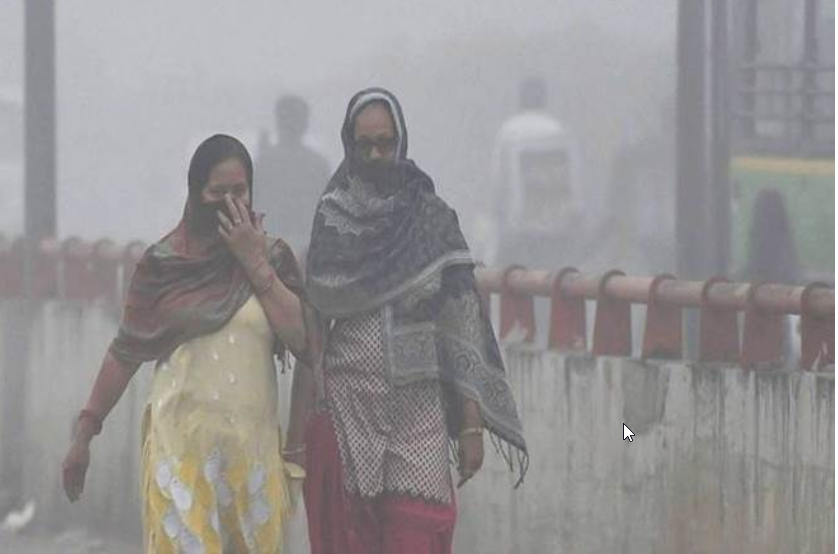New Delhi, November 6, 2024: Delhi-NCR and several other regions of the country have been witnessing alarming rise in pollution levels. Presently, in Delhi-NCR Air Quality Index (AIX) is hovering around 300-400 range and has even gone up to over 500. Air pollution poses a severe health risk, especially in winter when vehicle emissions, industrial pollutants, and stubble burning combine to create high smog levels. According to experts, hazards air quality is linked to lower life expectancy, heart disease, and respiratory issues. Children, the elderly, and individuals with pre-existing health conditions are particularly susceptible to the long-term impacts of this exposure, they warned. Experts said, in the month of October and on the onset of winter, they have been witnessing nearly 40% spike in the cases of cardio and respiratory problems including Asthma, triggered by high levels of pollution.
The World Heart Federation’s (WHF) World Heart Report 2024, reveals alarming statistics on the relationship between air pollution and cardiovascular disease (CVD) globally. In India, a country already burdened with a high prevalence of CVDs, the impact of environmental factors, particularly air pollution, poses a significant public health challenge. According to the report, air pollution exacerbates all major CVDs, including ischemic heart disease (IHD) and stroke, which together account for millions of deaths annually. Globally, air pollution contributed to 22% of deaths from IHD and 15% from strokes in 2019. In India, where urbanization and industrialization continue to rise, the situation is even more critical. The dense air pollution across the country, exacerbated by agricultural residue burning in Punjab and Haryana, is contributing to the growing burden of heart disease.
Experts are now calling for urgent attention and action to address these environmental triggers of CVDs. Indian cardiologists and public health professionals emphasize that without addressing pollution, tackling cardiovascular health challenges will remain an uphill battle.
Emphasizing the clinical mechanisms through which pollution impacts heart health Dr. Faraz Ahmed Farooqui, Consultant- Cardiology, PSRI Hospital said "Long-term exposure to air pollution leads to endothelial dysfunction and oxidative stress, both of which are critical precursors to cardiovascular diseases. In India, the incidence of conditions such as coronary artery disease, stroke, and heart failure has seen a marked increase in polluted areas. These pollutants not only increase blood pressure but also trigger inflammatory responses in the blood vessels, accelerating atherosclerosis, which further heightens the risk of heart attacks and strokes."
The World Heart Report also highlights how particulate matter from agricultural practices, particularly residue burning in North India, significantly impacts air quality. The plumes from burning crop stubble contribute to spikes in particulate matter (PM2.5 and PM10), aggravating the cardiovascular health of millions.
Dr Praveen Gupta, Principal Director & Chief of Neurology, Fortis Hospital, pointed out, "Pollution causes a significant impact on human health. It can exacerbate respiratory problems such as COPD and asthma. It increases the risk of heart disease besides being the major cause of cancer. It is also a leading risk factor of stroke, cognitive impairment, and dementia. Pollution has a negative influence on mental health, producing loss of focus, irritation, and brain fog. There is mounting evidence that exposure to air pollution increases the risk of cognitive decline and neurodegenerative disorders such as Alzheimer's and Parkinson's. Poor air quality has a substantial impact on our mental health, increasing the risk of anxiety and depression.”
The primary causes of this heightened risk include traffic exhaust fumes, home wood burning, and elevated levels of nitrogen dioxide, which can be ascribed to industrial emissions, gardening equipment, power plants, and construction and exhaust fumes. But that does not mean we should resign and accept air pollution as a part of our daily life. We can take steps decrease air pollution in their communities, such as utilizing public transportation wherever feasible, reducing the use of wood and coal in the house, repairing cars on a regular basis, and inspecting tires often. We may also avoid being exposed to high levels of air pollution by limiting the amount of time we spend in regions with high amounts of traffic or other pollutants, as well as using filtration systems to keep the air in our homes pure." Dr Gupta added.
In addition to outdoor air pollution, household air pollution remains a significant issue in India, where millions of households rely on biomass for cooking. This form of pollution is associated with increased mortality from ischemic heart disease and stroke, with women and children in rural areas being particularly vulnerable.
Dr. Rajendra Patil, Consultant - Cardiology, Jupiter Hospital said, "The health effects of air pollution are especially pronounced among women and children in rural areas due to household air pollution from biomass cooking. Studies have shown that long-term exposure leads to higher instances of hypertension, which is a major risk factor for heart disease. We need to accelerate the shift toward cleaner cooking alternatives and ensure that public health interventions target these vulnerable populations. Also, Diabetes and obesity, both of which are widely prevalent in India and are major risk factors for CVDs. It shows that air pollution worsens glucose handling, increases insulin resistance, and exacerbates the risk of diabetes-related heart conditions. "
"Patients with existing comorbidities like diabetes and obesity are doubly impacted by air pollution. Air pollution worsens metabolic syndromes, making cardiovascular events more frequent. We have observed an increase in diabetic patients experiencing heart failure and ischemic heart disease, especially during periods of high pollution. There is an urgent need to raise awareness about the link between air pollution and cardiovascular health. Given the current situation, we strongly advocate for stronger environmental policies at local and national levels,” added Dr. Sukriti Bhalla, Senior Consultant- Cardiology at Aakash Healthcare.
Experts gave a clarion call to policymakers, healthcare professionals, and the public alike to address the environmental factors driving cardiovascular disease in India. Without immediate and sustained action, the burden of heart disease will continue to rise, with air pollution standing as a silent but deadly contributor.

 Without immediate and sustained action, the burden of heart disease will continue to rise, with air pollution standing as a silent but deadly contributor.
Without immediate and sustained action, the burden of heart disease will continue to rise, with air pollution standing as a silent but deadly contributor.




















.jpeg)










.jpg)
.jpeg)